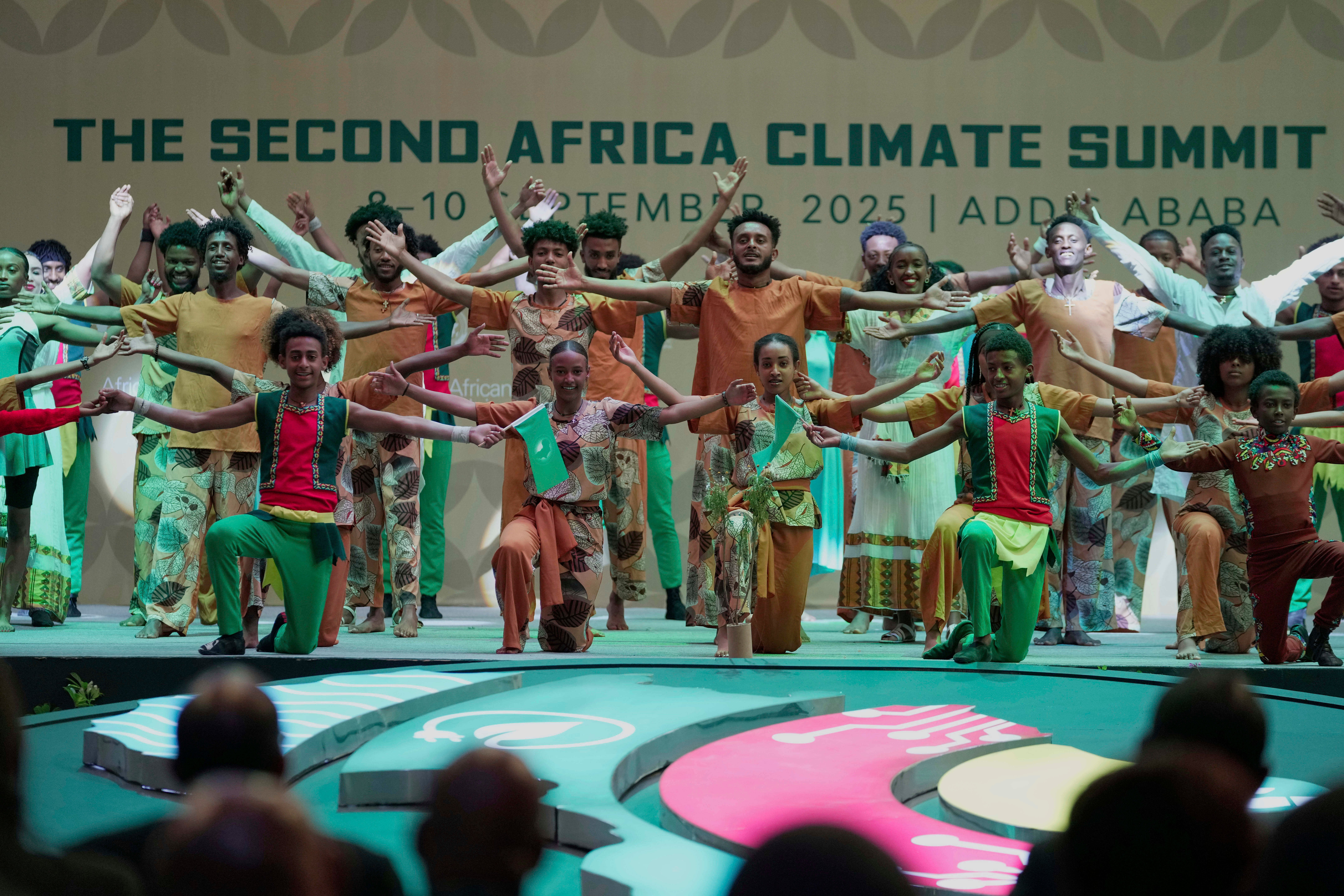A key topic at this week’s African Climate Summit in Ethiopia is the urgent need for billions more in funding from rich nations chiefly responsible for the climate crisis to flow to poorer nations to tackle and adapt to its devastating effects.
“Climate finance must be fair, significant and predictable,” said Mahmoud Ali Youssouf, the chairperson of the African Union in his opening address. “We need genuine cooperation.” The estimated adaptation finance needs for Africa stand at $61 billion (£45bn) per year this decade according to the UN - but the actual flow of money from rich nations totalled only $13bn in the last full statistics from 2022.
The urgent requests for more funds come against a backdrop of rich countries gutting overseas aid programmes. Between 2023 and 2024, the 17 largest aid providers cut the value of thier overall overseas aid programmes from $213 billion to $198 billion dollars, according to Donor Tracker. And in 2025, things have accelerated. Donald Trump’s administration in the US started particularly deep cuts as soon as came into office in January, while the UK and a number of other European countries have signalled cuts to their aid budgets.
Analysis from Refugees International carried out earlier this year found that 98 percent of all climate change related programmes from the United States Agency for International Development (USAID) had been terminated. Meanwhile, the The Organisation for Economic Co-operation and Development (OECD) predicts that aid directed from rich countries to Sub-Saharan Africa will fall by a further 16 to 28 per cent in 2025.
Many are hoping that in the absence of government actors, the private sector can fill the gap. On the ground at the African Climate Summit, there is indeed bullishness around that prospect, particularly when it comes to investment in renewable energy, given solar and wind power is now a cheaper energy source than fossil fuels in a number of African countries.
“We are at the conference because solar power is a massive opportunity for us,” said one European renewables investor attending the summit to The Independent. “Energy access remains a big problem - but the business case to invest is clear, and Ethiopia is one of our biggest markets.”
Such optimism comes as imports of solar panels from China to Africa were found to have increased 60 per cent over the past year, according to research published in August by the think tank Ember. That included 20 countries setting new import records.
But for many Africans suffering under climate-driven crises such as drought or flooding, climate adaptation to extreme weather events is seen as a bigger priority than renewable energy. Unfortunately, however, research from NGO Mercy Corps recently found that the private sector currently funds just 3 per cent of adaptation needs in developing countries.
The world’s poorest countries struggle to attract private investment over perceived risks related to their political or economic situations, with many investors particularly put off by the high levels of debt that many African countries are burdened with.
“The good news is there are innovative practices in the private sector that are taking the pressure off [overseas aid],” said Jacob Thoppil, head of partnerships at Climate Investment Funds (CIF), which is a G20-backed investment fund, at a panel event on the future of aid.
“But we are noticing that there is a disproportionate shift towards countries like Turkey, South Africa, Brazil, Indonesia, and India,” he continued. Such countries are certainly in need of investment - but there is a risk that the “extremely marginalised and vulnerable” are not receiving the climate support that they need, Thoppil added.
Even before aid cuts, Africa was in receipt of less than one-tenth of the adaptation finance it requires annually, according to Mercy Corps - and discussions currently taking ahead of COP30 in Brazil in November to try and drive more aid towards adaptation are not moving forward quickly enough.

“Currently what we’re seeing is adaptation is unfortunately continuing to take a backseat,” explained Olga Petryniak, senior director for climate resilience in Africa. “That’s why the Africa Climate Summit is so important, because it’s about finding a common position for Africa so that the continent can clearly make its demands known at future climate discussions.”
There remains a “lot of ambition” from rich countries, but we’re not hearing a lot of “expressed goals”, which are what is really required to change the conversation, Petryniak continued. It does not help, either, that the world’s richest country has completely cancelled its international climate programme, and is pressuring other countries to do the same.
Petryniak nonetheless finds hope in the myriad of grassroots climate adaptation programmes that she witnesses in her role. “Things like pastoral [farming] communities that are shifting grazing patterns, or locally-produced clean cooking solutions or organic fertilisers,” she says. “Now we just need money to flow to such programmes so that they can truly scale and allow people to adapt.”
Ask most people at the African Climate Summit what they think of such money, and they would not describe it as aid, but as fair recompense for the damage they are suffering from a crisis that they have barely contributed towards.
“Africa's dependence on climate finance and stems from complex historical and economic factors that reflect deep-rooted global inequalities,” said Catherine Koffman, director of the Africa Region for the UN-backed Green Climate Fund.
“This is not aid, but a form of climate debt for disproportionate impacts suffered on a continent that has done very little to cause this crisis.”
This article was produced as part of The Independent’s Rethinking Global Aid project







